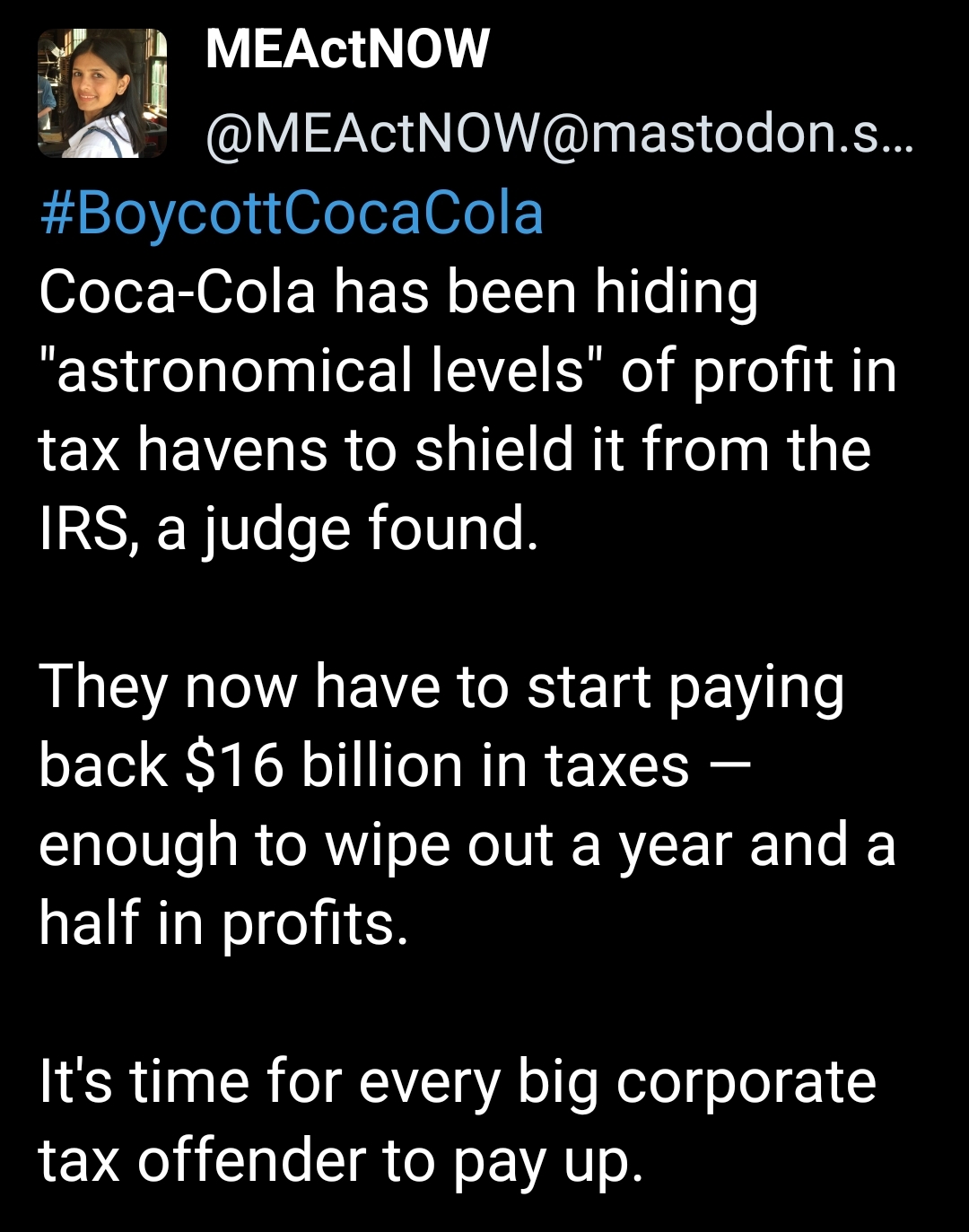this post was submitted on 14 Aug 2024
1890 points (99.4% liked)
People Twitter
5466 readers
1260 users here now
People tweeting stuff. We allow tweets from anyone.
RULES:
- Mark NSFW content.
- No doxxing people.
- Must be a pic of the tweet or similar. No direct links to the tweet.
- No bullying or international politcs
- Be excellent to each other.
- Provide an archived link to the tweet (or similar) being shown if it's a major figure or a politician.
founded 2 years ago
MODERATORS
you are viewing a single comment's thread
view the rest of the comments
view the rest of the comments

The intangible property for coke is a secret recipe that is preserved in some vault in the US. There's no transfer of IP here and that's not what's in dispute.
The facts are centred around the profitability of concentrate producers that earn the super profits. Operating entities and the US makes a slim margin.
You can read a better informed analysis here.
Manufacturing is different than IP transfers.
IP is owned by the US. What they're describing is transfer pricing. Subsidiaries are owned by coke hence by definition coke sets the prices under which the US charges for their IP. It's tax advantageous to charge a low amount to shift profits to low tax jurisdictions.
Numbers look massive but overall not large enough. Coke is gigantic and the dispute spans multiple years. The IRS hasn't always covered themselves in glory and they may still fumble a technical aspect on the burden of proof.
Interesting to see it unfold but coke has a history of environmental, business and humane malpractices. This is just another outcome of such business model.